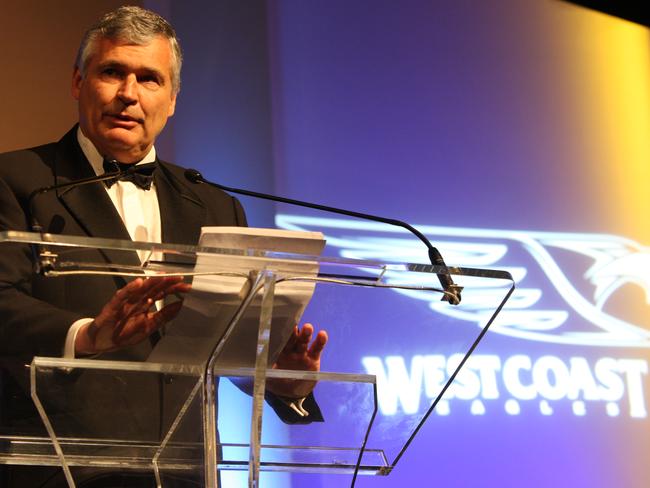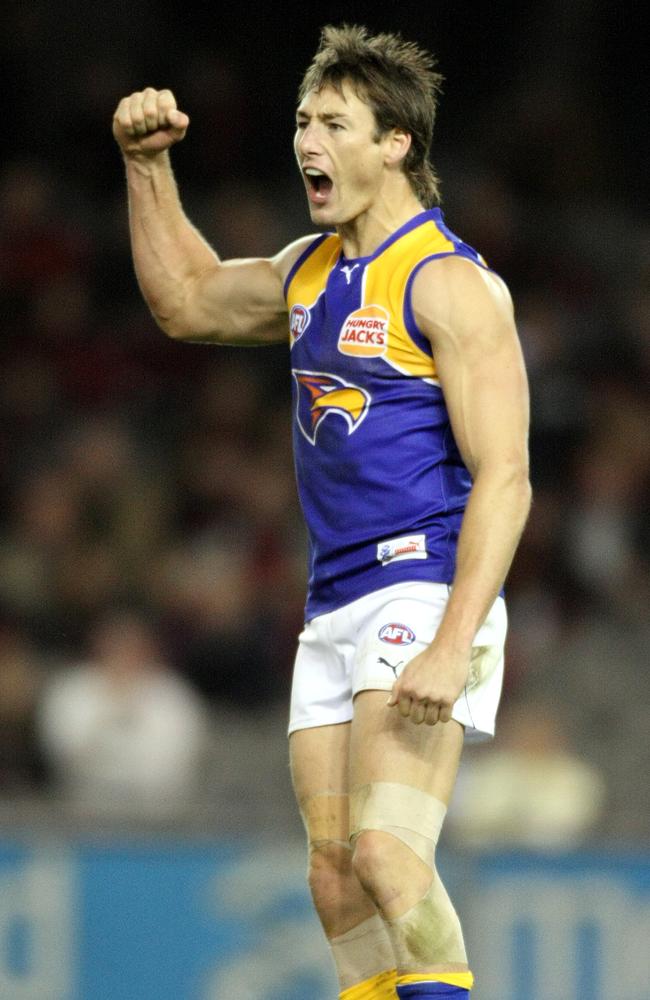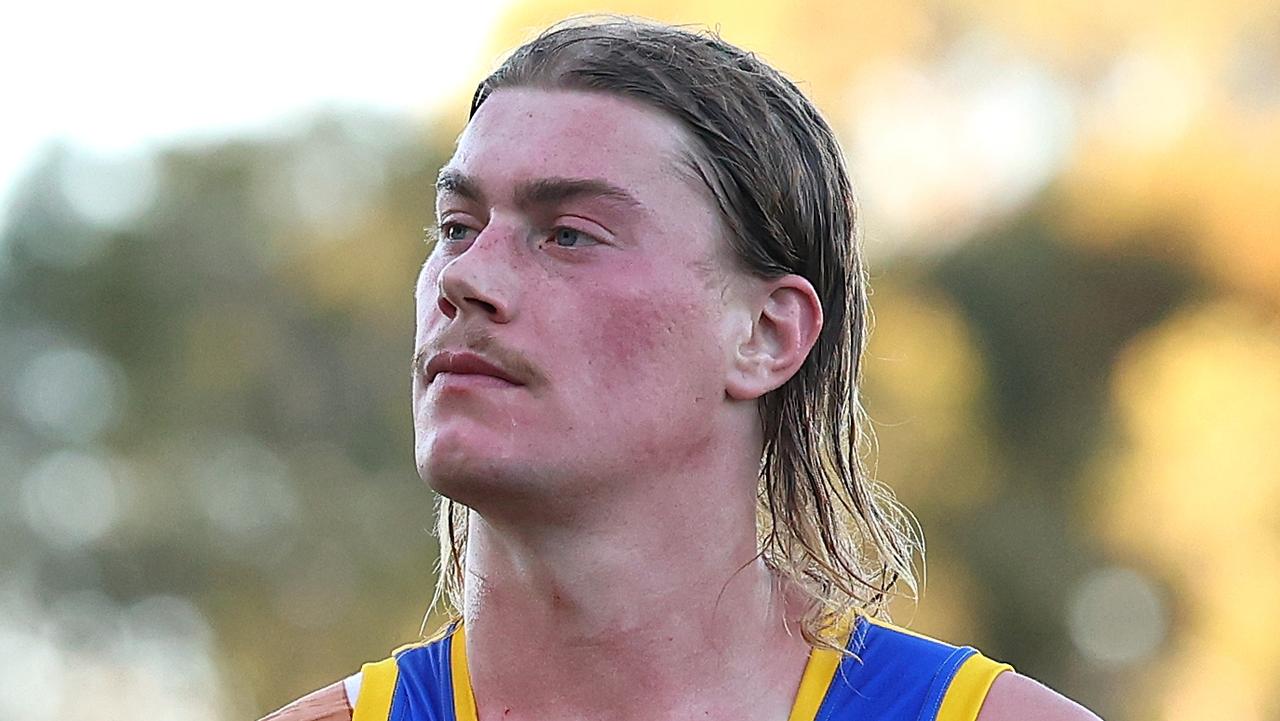Former Eagles chairman Dalton Gooding speaks on West Coast’s culture in wake of Adam Hunter’s death
Former Eagles boss Dalton Gooding has revealed he pushed for a club-controlled funding program for former stars during his time at West Coast, in the wake of the tragic death of Adam Hunter.
West Coast
Don't miss out on the headlines from West Coast. Followed categories will be added to My News.
Shattered West Coast Eagles premiership chairman Dalton Gooding says the game must do more to protect retired players who slip between the cracks.
Gooding said he was gutted by the sudden death of 2006 grand final hero Adam Hunter, whose body was found in a suburban home in Bunbury, two hours south of Perth, on Wednesday.
The WA business boss, who steered the Eagles from 2003 to late 2007, revealed he had pushed unsuccessfully during his tenure to introduce a club-controlled funding program for former stars.
“Back in my time at the Eagles, I was very keen to get a club endowment system going to help players in their post football life,” Gooding said.

“But it’s very difficult to do that when you have player agents acting for players. I thought a good way would have been to have some sort of compulsory deduction from their earnings into an endowment fund run by the clubs – a bit like compulsory superannuation, which really set Australia up.
“But the player agents weren’t really supportive of that.”
Gooding said the industry “absolutely needs to do more for our players”.
“When they lose relevance – not being a football star anymore – it is very difficult for them to reintegrate back into life because a lot of them haven’t studied and they don’t have any work-life skills,” he said.
“They really do struggle for a while. There are very few jobs in the world where you earn most of your money in your early 20s.
“Most people increase their income earning capacity over the period of their working life, but that doesn’t happen in football and they get used to a certain lifestyle and then the financial cliff comes when they finish.
“I’ve got to put a caveat on it because I don’t really know what the AFL Players’ Association does these days – but it’s always been my bugbear that clubs don’t have their own endowment fund to help their past players.”
Gooding said Hunter’s 2006 premiership teammates were “hurting bigtime” over the tragedy.
Asked if he had reflected on the off-field troubles that plagued the Eagles during his era, Gooding said: “(Former West Coast CEO) Trevor Nisbett and myself talk about it quite regularly.
“But what you’ve got to appreciate is that back in 2004, 2005 and 2006, the drug ice (crystal methamphetamine) was completely unfamiliar to all of us – and also at football clubs, what goes on amongst players is kept very tight, so it takes a while for that sort of behaviour and information to filter up to boards.
“And certainly, when we found out that there was a problem we moved very quickly – and put a lot of time into turning the culture around.
“But it is something that can infiltrate a club quite quickly without you really knowing it.”

Gooding said he had not spoken to Hunter for many years.
“He hadn’t been around the club, but that 2006 premiership group was still very strong – and obviously they are all hurting bigtime. It’s very, very sad,” he said.
“Adam was a really good player, a very much underrated player. He was as tough as nails and quite often when we were struggling in a game, John Worsfold would move him forward and he’d kick a couple of goals and just get us going – he was a real swingman – and very, very revered within the group and by the supporters.”
Police are treating Hunter’s death as non-suspicious. He was 43.
Originally published as Former Eagles chairman Dalton Gooding speaks on West Coast’s culture in wake of Adam Hunter’s death




